Harsh Environment Electronics Workshop
November 1, 2022
Davidson-Gundy Alumni Center
The University of Texas at Dallas
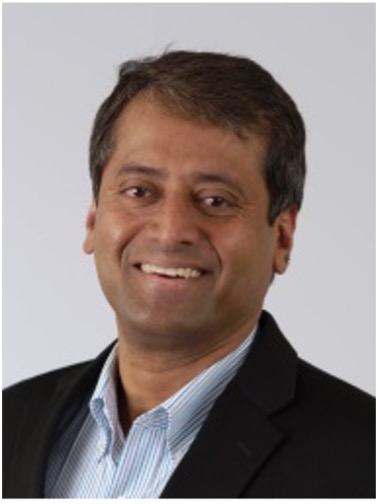
Babu Chalamala
Energy Storage Program Manager, Sandia National Laboratories
Bio
Dr. Babu Chalamala is head of the Energy Storage Technology and Systems Department at Sandia National Laboratories. He currently chairs the IEEE PES Energy Storage and Stationary Battery Committee. He received his Ph.D. in Physics from the University of North Texas and B.Tech. in Electronics and Communications Engineering from Sri Venkateswara University. He is a Fellow of the IEEE, AAAS, and the National Academy of Inventors.
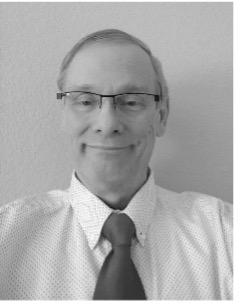
Ken Decker
Director of TX Advanced Reliability, Qorvo
Bio
Kenneth D. Decker (Ken) received B.S.E.E. and M.S.E.E degrees from Brigham Young University, 1982. He worked 16 years for Texas Instruments as a microwave and GaAs reliability test engineer. He became a member of the Texas instruments technical staff in 1996. During that time, he supervised the work involving Reliability and Radiation testing of GaAs devices for the multiyear Phase 1 and Phase 2 MIMIC programs under Naval Air. Starting in 1998 he worked 17 years at TriQuint Semiconductor as the Quality and Reliability Manager/Director. He is the author of numerous publications on various aspects of GaAs reliability. Ken is currently the Director of TX Advanced Reliability for Qorvo and is involved in the reliability testing of GaN and other development processes.
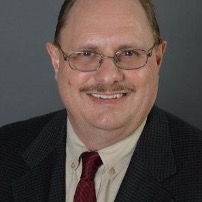
Ronald (Ron) Dusterhoft
Technology Fellow, Production Enhancement at Halliburton
Bio
Ron Dusterhoft is a Halliburton Technology Fellow for Production Enhancement with 38 years of industry experience. Ron’s specific areas of thought leadership include hydraulic fracturing, FracPac completions, sand control screens, sand consolidation, sand control down hole tool systems, completion design and reservoir simulation for shale.
Ron is currently focused on drilling and completion optimization, reservoir understanding and stimulation design for unconventional, shale assets. This involves the use of full asset workflows and more effective data management to maximize collaboration and knowledge sharing between Geoscience, Drilling and Completion Engineering.
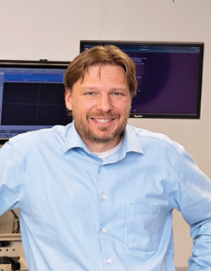
Matt Francis
Founder and President/CEO, Ozark Integrated Circuits, Inc
Bio
Matt Francis, Ph.D. Matt is founder and President/CEO of Ozark Integrated Circuits, Inc. Dr. Francis earned BSEE (’03), BS Physics (’04), MSEE (’07) and PhD (’09) degrees from the University of Arkansas. Matt also serves as a Region Director, Elect (Region 5 USA Southwest) for the IEEE, the world’s largest technical professional organization, and as an advisor to science-based startups through the local Science Venture Studio. He is a Council Member for the City of Elkins, AR, and is a co-founder of the Elkins Community Network, a 501c3 for local community engagement, and co-founder of the Elkins Robotics/Electronics Club.

Dev Palmer
Deputy Director, Microsystems Technology Office (MTO)
Bio
Dr. Dev Palmer was named Deputy Director of the Microsystems Technology Office (MTO) in April 2020. Prior to his appointment, he was Chief Technologist at the Lockheed Martin Advanced Technology Laboratories, where he directed the independent re search and development program and worked with the senior leadership team to define and execute technology strategy.
He served tours as a program manager in MTO from 2012 to 2017 and at the US Army Research Office Electronics Division from 2001 to 2012. In both positions, he directed a portfolio of research and development programs driving innovation for next-generation systems for radio communications, sensing, and electronic warfare. His career in defense-related research and development began at the Microelectronics Center of North Carolina, where he worked on a number of microsystems technologies and applications from 1991 to 2001, ultimately serving as director of the Optical and Electronic Packaging Group.
Palmer earned a Bachelor of Arts in physics and a Master of Science and Doctorate of Philosophy in electrical engineering from Duke University. He was elected Fellow of the IEEE in 2012 “for leadership and contributions in microwave and millimeter wave systems and sources.” His work in guiding research and technology transition for national security has been recognized by the 2010 Army Research Laboratory Award for Program Management, the 2011 Army Superior Civilian Service Medal, the 2013 Secretary of Defense Award for Excellence, and the 2017 DARPA Meritorious Service Medal.
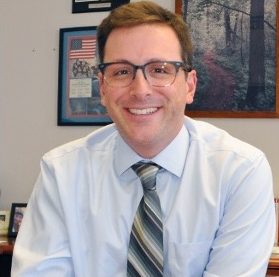
Jonny Pellish
Electronic Parts Manager, NASA
Bio
Dr. Jonny Pellish is employed at the Goddard Space Flight Center as the National Aeronautics and Space Administration’s Electronic Parts Manager, responsible for workforce development and coordinating Agency-wide technical activities in the electronic parts and radiation effects engineering communities. Jonny is also the deputy manager for the NASA Electronic Parts and Packaging (NEPP) Program, which is operated by NASA Goddard on behalf of the NASA Office of Safety and Mission Assurance.
Since January 2022, Dr. Pellish has been working as a Legislative Fellow for the U.S. Senate Committee on Commerce, Science, and Transportation as a member of the Space and Science Subcommittee. There, he had the opportunity to support the drafting and passage of the CHIPS and Science Act of 2022 as well as wide range of other domestic manufacturing, scientific research, and space policy issues.
Jonny received the B.S. degree in physics from Vanderbilt University in 2004, and the M.S. and Ph.D. degrees in electrical engineering from Vanderbilt University in 2006 and 2008. From 2007–2008, he held an IBM Ph.D. Fellowship, including a co-op position at the IBM Austin Research Laboratory. Jonny has authored or co-authored over 75 refereed publications in addition to numerous conference and workshop presentations. He is a Member of the American Institute of Aeronautics and Astronautics and a Senior Member of the Institute for Electrical and Electronics Engineers.
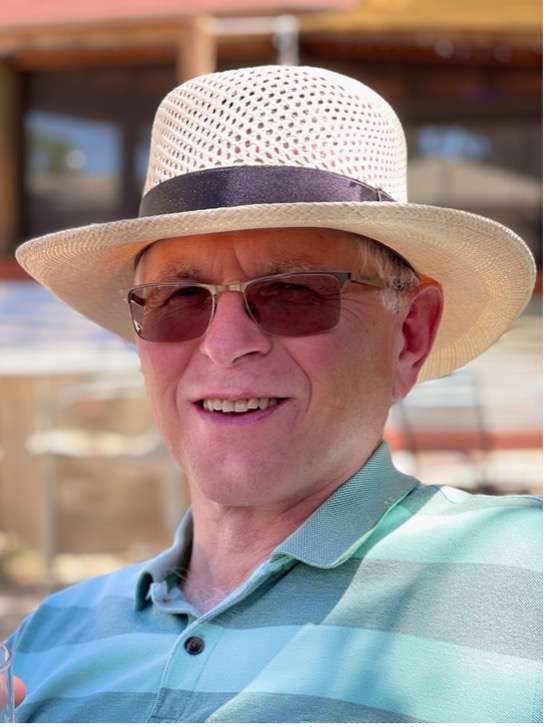
Ron Schrimpf
Institute for Space and Defense Electronics, Vanderbilt University
Bio
Ronald D. Schrimpf received the B.E.E., M.S.E.E., and Ph.D. degrees from the University of Minnesota. He was a faculty member at the University of Arizona from 1986-1996. Since 1996, he has been with Vanderbilt University, where he currently is the Orrin Henry Ingram Professor of Engineering and Director of the Institute for Space and Defense Electronics. His research focuses on reliability and survivability of electronics for use in extreme environments, particularly those in which they are exposed to high levels of radiation. He was Principal Investigator for two Multi-Disciplinary University Research Initiatives dealing with physical mechanisms related to radiation response and reliability of emerging electronic technologies and he currently is Principal Investigator for the AF Center of Excellence in Radiation Effects. Ron has served as the General Chair and Technical Chair of the IEEE Nuclear and Space Radiation Effects Conference, Chair of the IEEE Radiation Effects Steering Group, and President of the IEEE Nuclear and Plasma
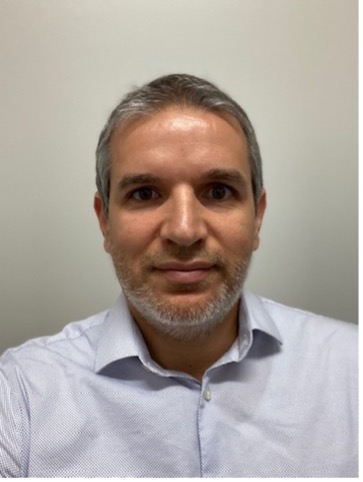
Hector Torres
Design Director, Texas Instruments for Space Power Products
Bio
Hector Torres is an analog IC design engineer with 23+ years of experience. He is the Design Director for Space Power Products at Texas Instruments where he leads several teams in the development of radiation hardened by design power management ICs. Hector has developed a combination of techniques and innovations to improve the radiation-induced single event and TID performance of TI’s Space Power products. He is a senior member of the technical staff at TI, has 17 patents filed, and is in charge of driving the technology roadmap for Space Power.

Greg Yeric
Chief Technology Officer, Cerfe Labs
Bio
Greg Yeric, CTO of Cerfe Labs, earned a Ph.D. in microelectronics from The University of Texas at Austin and has worked in a broad range of microelectronics areas including embedded Flash memory process integration at Motorola Advanced Products Research and Development Labs (APRDL); test chip design, yield improvement and design-technology co-optimization at TestChip Technologies, which became HPL Technologies (where Greg became CTO) and then Synopsys through two acquisitions. He later rose to the Fellow grade at Arm Holdings, focusing on design-technology interactions, before Cerfe Labs spun out of Arm in October 2020. Greg has been a frequent invited conference speaker, including lithography conferences such as SPIE and EUVL Symposium, devices conferences such as the 2015 IEEE International Electron Devices Meeting Plenary, design conferences such as DAC, and test conferences. He has volunteered as a member of the TPC of the IEEE VLSI Technology Symposium (2015-2022) and as a member and eventual chair of the Microelectronics Exploratory Committee (MEC) for DARPA’s Microsystems Technology Office (MTO, 2017-2020).
